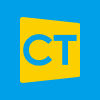ESG in tokenization of Real World Assets

蔡政德
蔡先生是香港國金獅子會的創會會員,並於2021-22年度擔任香港國金獅子會會長,除獅子會以外,他擔任澳洲管理會計師香港分會一帶一路委員會副主席、金融科技師協會 財富科技委員会召集人、環境社會及企業管治基準學會委員。
More BlogsThe integration of Environmental, Social, and Governance (ESG) principles into the tokenization of Real World Assets (RWA) merges sustainability goals with blockchain innovation, creating opportunities for transparency, accountability, and impact.
1. Alignment in RWA Tokenization
- Environmental (E):
- Green Asset Tokenization: Tokenizing renewable energy projects (e.g., solar farms), carbon credits, or energy-efficient real estate. Blockchain enables tracking of environmental metrics (e.g., carbon offsets) in real time.
- Proof of Sustainability: Assets undergo ESG audits (e.g., LEED certification for buildings) before tokenization, with data embedded in tokens for investor transparency.
- Energy-Efficient Blockchains: Use of low-energy consensus mechanisms (e.g., Proof-of-Stake) to mitigate blockchain’s carbon footprint.
- Social (S):
- Community-Centric Projects: Tokenizing affordable housing, social infrastructure, or fair-trade supply chains. Fractional ownership democratizes access to investments with positive social impact.
- Inclusive Participation: Lowering investment barriers for underrepresented groups (e.g., micro-investments in community projects via tokens).
- Stakeholder Engagement: Smart contracts can enforce revenue-sharing models benefiting local communities (e.g., profit-sharing with residents near a tokenized infrastructure project).
- Governance (G):
- Transparent Ownership: Blockchain’s immutable ledger ensures clear ownership records and compliance with regulatory frameworks.
- Decentralized Governance: DAOs (Decentralized Autonomous Organizations) allow token holders to vote on asset management, ensuring accountability.
- Regulatory Compliance: Tokens can embed KYC/AML checks and automate ESG reporting to meet global standards (e.g., EU’s SFDR, SEC climate disclosures).
2. Mechanisms for ESG Integration
- Smart Contracts: Automate ESG criteria, e.g., releasing funds only if a project meets predefined sustainability milestones.
- **Oracles & Data Feeds:** Integrate third-party ESG data (e.g., carbon emissions, labor practices) into blockchain platforms for real-time verification.
- Token Standards: Develop ESG-specific token standards (e.g., ERC-1400 for security tokens) that mandate ESG disclosures in metadata.
3. Benefits
- Investor Confidence: ESG-aligned tokens attract institutional investors and ESG-focused funds.
- Liquidity & Accessibility: Fractional ownership of sustainable assets (e.g., green bonds) broadens investor participation.
- Impact Tracking: Real-time monitoring of ESG metrics (e.g., water saved, jobs created) via blockchain enhances trust.
4. Challenges & Solutions
- Greenwashing Risk:
- Solution: Third-party certifications (e.g., B Corp, Climate Bonds Initiative) and on-chain audits.
- Regulatory Fragmentation:
- Solution: Cross-border ESG frameworks (e.g., ISO 14000) harmonized with tokenization standards.
- Data Privacy:
- Solution: Zero-knowledge proofs to validate ESG compliance without exposing sensitive data.
5. Case Studies
- Green Bonds: The World Bank’s blockchain-based bond (2018) raised funds for sustainability projects, with proceeds tracked transparently.
- Real Estate: Companies like RealT tokenize energy-efficient properties, providing investors with ESG metrics (e.g., energy savings).
- DAOs for Governance: The Boson Protocol uses DAOs to govern decentralized commerce, ensuring ethical supply chain decisions.
6. Future Outlook
- AI-Driven ESG Scoring: Machine learning models analyzing ESG data to rate tokenized assets dynamically.
- Interoperability: Cross-chain ESG tokens enabling global compliance and liquidity.
- Regulatory Tech (RegTech): Automated ESG reporting tools integrated into tokenization platforms.
ESG in RWA tokenization bridges finance and sustainability, leveraging blockchain’s strengths to enforce accountability, democratize impact investing, and align with global climate goals. Success hinges on robust verification frameworks, regulatory collaboration, and scalable tech solutions to overcome greenwashing and fragmentation risks.
關於香港國金獅子會 (Lions Club of Hong Kong IFC)
香港國金獅子會於2017年創立,隸屬國際獅子總會中國港澳303區,創立的一年適逢是國際獅子總會成立100週年。國金獅子會的會員全數來自資本市場及金融銀行業界,是港澳地區最早一個由單一界別專業人士所組成的獅子會屬會。國金獅子會服務除了是圍繞著獅子總會服務範疇之外,還引入了聯合國SDG及ESG,尤其在社會(Society)的元素,對扶貧及青少年發展特別關注。除了以香港為服務基地之外,國金獅子會還主張無分國界、無分種族的服務。





 Follow CTgoodjobs for the latest career news, hot topics and recommended jobs!
Follow CTgoodjobs for the latest career news, hot topics and recommended jobs!